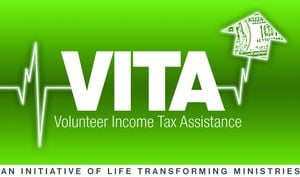The stage is set for the 2025 Bundestagswahl as millions of Germans prepare to cast their votes on February 23rd. This pivotal election, prompted by the abrupt collapse of the Ampel coalition, seeks to redefine the composition of the German Bundestag amid various socio-economic challenges.
According to the latest reports, around 6.05 million voters are registered to participate, particularly across Niedersachsen, Leipzig, Mecklenburg-Vorpommern, and Offenbach, with polling stations opening at 8 AM and expected to close at 6 PM. Initial projections and results are anticipated shortly after the polls close, creating tension and excitement around the election atmosphere.
By 11:15 AM, Niedersachsen reported approximately 13.8 percent voter participation, slightly down from the 14.3 percent recorded at the same hour during the last federal election. Public interest remains high as many citizens recall prior participation rates, with 2021's final voter turnout reaching 74.7 percent.
The significance of this election is amplified by the previous internal conflicts leading to the Ampel coalition's dissolution—a coalition formed from the SPD, Greens, and FDP, marking the first of its kind. Now, candidates are under scrutiny as parties race against each other to secure control over the new Bundestag. Leading contenders for the Chancellor position include Olaf Scholz of the SPD, Friedrich Merz of the CDU, and Robert Habeck from the Greens, among others, each aiming to stake their claim to the role amid changing public sentiments.
Notably, voter sentiment is captured by grassroots feedback, signaling concerns over issues such as migration, the economy, and climate change. Activist groups have pointed out feelings of disillusionment, especially criticizing the limited focus on future-oriented topics during the campaign, as discussions often spiral toward rising nationalism and migration issues.
Meanwhile, public engagement is high at the polling booths. Various regions, including Leipzig, are witnessing citizens line up to make their voices heard, with 39.3 percent reported by 10 AM. Here, the direct competition within the electoral districts is palpable, as candidates like Jens Lehmann (CDU) attempt to replicate their success from 2021, where they narrowly clung to their mandates.
Legislative reforms have changed the game for this election. The new Bundestag will now consist of only 630 members, significantly fewer than the current arrangement. This shift could alter the dynamics of political representation, as the importance of the Zweitstimme—the proportionate representation ballot—grows, impacting candidates who previously relied heavily on direct votes.
Insights from various media summarize the public's mood as anticipatory yet cautious. Commenting on the electoral climate, Olaf Scholz remarked, "Die Ampel-Koalition ist gescheitert, und wir stehen vor einer wegweisenden Wahl," signaling the gravity of the electoral outcomes and their ramifications for his ambition to remain Chancellor.
Collectively, the electoral narrative reflects not only the mechanics of voting but the stories and aspirations of the citizens involved. Unusual polling locales, reflecting community spirit—like houses turning rooms for voting—are part of the fabric of this election day, affirming the value of participation.
By evening, the atmosphere will be rife with anticipation as results start to filter through, with many hoping for clear direction amid the political uncertainty. Polling officials expect to release condensation results post-6 PM, followed by detailed analysis flowing throughout the night, offering what promises to be significant insights for Germany's future.



